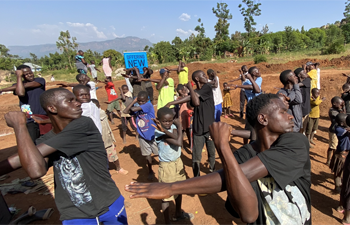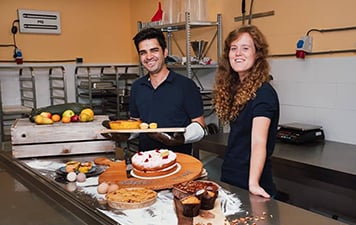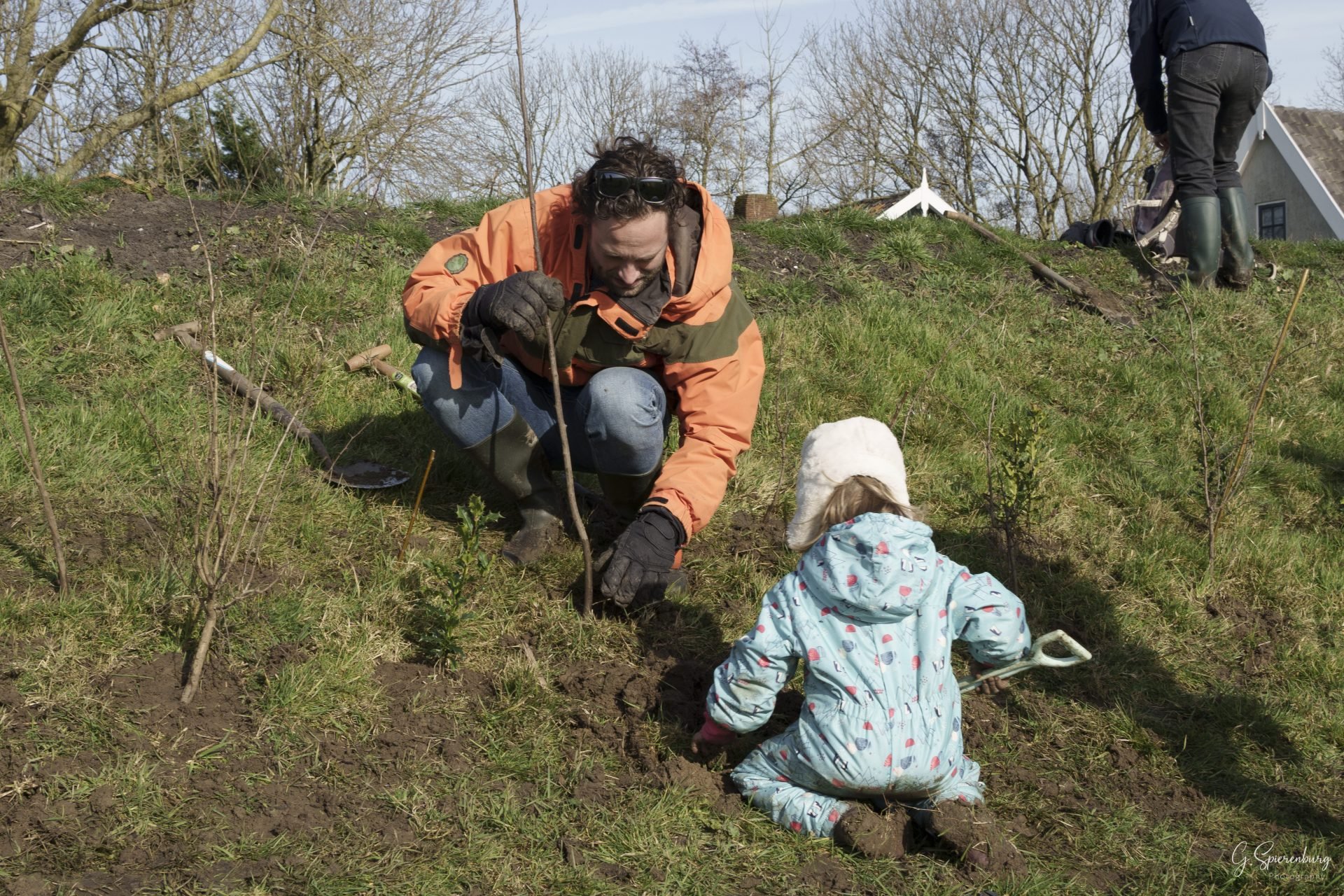Four years ago, Loes van der Meulen read that the city of Arnhem was high in the Dutch poverty rankings. She was shocked and motivated to learn more. She came up with an idea that would simultaneously create a meeting place, show people that fruit and vegetables needn’t be a luxury, and combat food waste. And so the DOEN-supported mobile shop De Blauwe Tomaat (the Blue Tomato) was born. *Loes told us about the great side of socially inclusive entrepreneurship as well as obstacles she’s encountered.
Reasonably priced, fresh and inclusive
De Blauwe Tomaat travels through the different areas of Arnhem, selling fresh food at affordable prices. As far as is possible, the stock consists of B-grade products from the wholesaler SC van Ravenswaaij. People with poor job prospects gain work experience in the shop, and people on limited budgets can buy their groceries at a good price.
A neighbourhood meeting place
Loes says, “We’ve mainly chosen neighbourhoods where there are no shops or, for example, where a lot of elderly people live. De Blauwe Tomaat’s goal is to sell food, including fruit and vegetables, while also giving local people a place to meet.” To that end, they set up a small outdoor coffee shop at each stop. It’s a place where neighbours can get to know one another, grandparents can take grandkids for an outing, and lonely locals can find company. “One of the customers, since he’s started to take better care of himself, is now in touch with his neighbour, who comes over for a bite to eat,” Loes says. “That’s wonderful to see.”
It’s clear that it’s the small gestures that make De Blauwe Tomaat such an asset to Arnhem’s social landscape. “For example, you see how people perk up when, say, they’ve had an operation and you ask them how they’re feeling,” Loes says.
Trial and error
Along with her obvious enthusiasm and friendly disposition, Loes has persistence. Starting the business wasn’t always easy. For instance, in the early days the van wouldn’t start when it was too cold in winter or too hot in summer.
Purchasing didn’t go as planned, either. While it was no problem during the growing season, in winter very few B-grade products were available. That means De Blauwe Tomaat sells far more items from the no-waste product range during summer. “So we’ll sell strawberries that aren’t perfectly shaped, melons with damaged rinds, and different-sized tomatoes,” Loes says. “But it’s not like the entire shop is full of no-waste products. I thought it would be, but we’ve never managed that. It’s a third of our range at most.”
Loes says this is mainly due to local demand. She noticed that products that didn’t look as good didn’t sell as well. “That’s not surprising. If you’ve got a budget of €3 or €4 a day, you’d rather buy products that will last longer than something that has to be eaten today. If you’ve got a bit more to spend, you might want to make some concessions.”
However, the greatest hurdle was of a different nature: it proved difficult to find a good driver and put together a suitable team of volunteers. “Volunteers are such an essential part of De Blauwe Tomaat,” Loes says. “It turned out to be harder to find volunteers who are sociable, embody the values we stand for as an organisation, and don’t have too many problems of their own.”
Personal growth
Perseverance won the day. De Blauwe Tomaat now has a team of around 20 volunteers, all of whom joined the organisation some time ago. “Most of them were quite distanced from the job market and/or mainstream society,” Loes says. “Because of that, they had a hard time communicating at first. But now they get a lot of pleasure from chatting with other people.” And the social skills they’ve developed make finding employment less of a challenge. “I’m proud that our volunteers have had space to grow. That helps people to come out of their shells more.”
Partnership with DOEN
A grant from DOEN’s Social Enterprise and Inclusion programme will enable De Blauwe Tomaat to continue to develop and professionalise. Loes is grateful for DOEN's partnership. “The cooperation and personal contact has given me space to focus on entrepreneurship instead of letting money worries hold me back,” she says.
Plans for the future
“To become truly self-sufficient, we started selling fruit subscriptions for businesses,” Loes says. “With support from DOEN we were able to buy some nice crates and improve our visibility.” These efforts have been on the back burner recently, because businesses didn’t necessarily need fruit for employees. But Loes plans to resume the project soon. She’s also thinking about expanding to another city.


